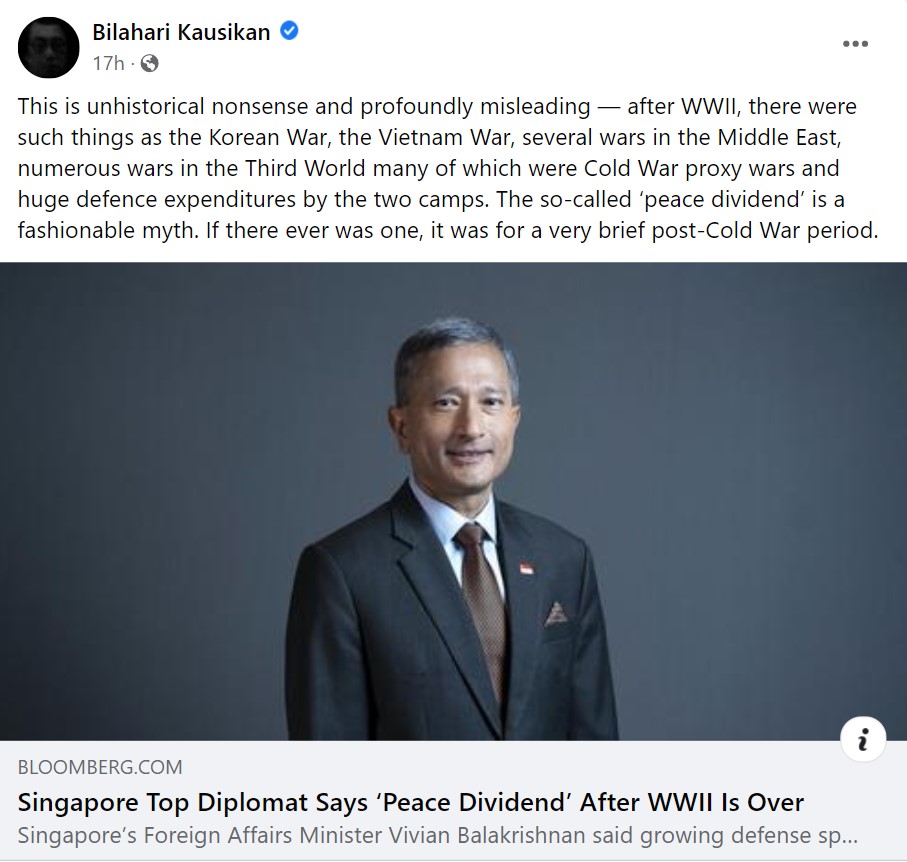SINGAPORE: “Unhistorical nonsense” and “profoundly misleading” — these were the words retired diplomat Bilahari Kausikan used to describe some of Foreign Affairs Minister Vivian Balakrishnan’s recent comments in a Bloomberg interview that aired yesterday (6 Mar).
Taking part in the “Bloomberg Markets Asia” television programme yesterday, the ruling party politician asserted his belief that the “peace dividend” that spanned seven to eight decades after World War II is over. He said:
“The last seven, eight decades of the peace dividend after the Second World War is over. You are going to see increased defence expenditure in literally all over the world.
“Certainly, in the case of Europe, (and) America still spends more than anyone else, several times more than even China. So even after China’s (defence budget) increase, it is still a fraction of the United States.
“My sense is yes, I see increased defence expenditures all around. I see this merely as an index of the fact that the post-World War Two peace and prosperity that we almost took for granted is over.”
Popularized by ex-US President George H. W. Bush and former UK Prime Minister Margaret Thatcher, the term “peace dividend” refers to the idea that, following a period of conflict or military buildup, a country can redirect resources that were previously devoted to military expenditures towards other areas of public investment or social welfare.
In the context of World War II, the peace dividend refers to the economic and social benefits that many countries experienced following the end of the war. With the cessation of hostilities, countries no longer needed to spend as much money on military operations, which allowed them to invest in other areas such as infrastructure, education, and healthcare.
Former Ambassador-at-large Bilahari Kausikan took to Facebook last night to slam Dr Balakrishnan’s views on the topic. Calling the notion of a peace dividend a “fashionable myth,” the noted ex-diplomat said:
“This is unhistorical nonsense and profoundly misleading — after WWII, there were such things as the Korean War, the Vietnam War, several wars in the Middle East, numerous wars in the Third World many of which were Cold War proxy wars and huge defence expenditures by the two camps. The so-called ‘peace dividend’ is a fashionable myth.”
He added that if there ever was a peace dividend, it was for a “very brief post-Cold War period” – not decades following the Second World War.
Indeed, the ‘peace dividend’ idea was most frequently used at the end of the Cold War, when many Western nations significantly cut military spending, such as Britain’s 1990 Options for Change defence review.


